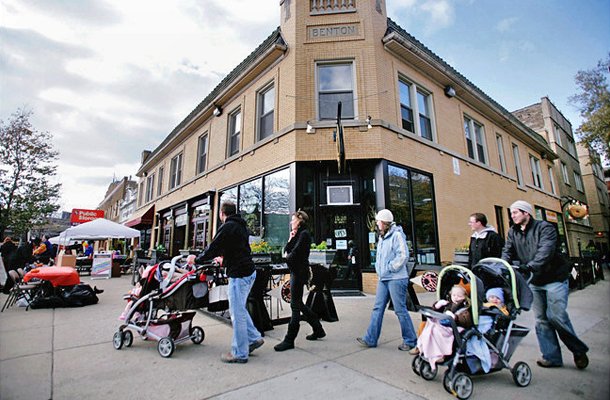Study eyes how built environment can aid active living, deter obesity
 A paper by Xuemei Zhu details active living research.
A paper by Xuemei Zhu details active living research.
Xuemei Zhu, assistant professor of architecture at Texas A&M, co-authored a [paper] (http://www.instituteccd.org/library/3258) summarizing the research behind active living — a new, comprehensive way of tackling obesity that involves the built environment — in the new edition of a [journal] (http://www.instituteccd.org/library/3270) published by the [Institute for Comprehensive Community Development] (http://www.instituteccd.org/index.html) .
Zhu and James F. Sallis, director of [Active Living Research] (http://www.activelivingresearch.org/) and a distinguished professor of family and preventive medicine at the University of California, San Diego, detail findings that show how the fight against obesity can be facilitated by the provision of safe streets, compact land development, local parks and green spaces and well-designed local schools, drawing an explicit link between the active living movement and comprehensive community development.
“Living in a ‘healthy community’ is everyone’s dream, yet what that is and where to find it can be difficult questions,” they wrote.
In suburban communities the workplace, school and grocery store often require a drive, which is sedentary and often stressful, they continue.
“Time for family or exercise is more difficult because of a longer commute,” they wrote. “Children spend more time in front of television or video games, as there are ‘dangerous traffic and strangers’ outside and no watchful neighbors’ eyes on streets.”
Zhu and Sallis include findings detailing the positive health effects of designing communities that allow people to safely walk from place to place, walkable communities’ potential to promote community development by generating economic, environmental and social benefits and the healthier diets and lower rates of obesity of individuals with better access to supermarkets and limited access to fast-food restaurants.
The ICCD’s [journal] (http://www.instituteccd.org/library/3270) is a national forum for debate on ideas, research and policy on innovation in community development, bringing together key voices in the community development field to discuss theory, practice, challenges and opportunities with the aim of supporting integrated and comprehensive neighborhood transformation.
Previous post
Tags
- architecture
- building a better texas
- health systems & design
- housing & urban development
- land development
- landscape architecture & urban planning
- research
- wellness
Related Posts
Research eyes neighborhood walkability

CHSD hosts ‘boot camp’ for architects

Zhu heading physical activity study project
College partners with TAMU-G on coastal research institute

Students design building plans for Fort Worth school
Follow Us
Facebook Twitter Vimeo Youtube Flickr RSS
Recent Posts

Planning prof heads study of disaster housing aid

A message from the dean

Former student remembered as expert planner

Leading educator named new head of Architecture Dept.

 Xuemei Zhu, assistant professor of architecture at Texas A&M,
co-authored a recently published paper detailing links researched links between active living and the built environment.
Xuemei Zhu, assistant professor of architecture at Texas A&M,
co-authored a recently published paper detailing links researched links between active living and the built environment.



_thumbnail_small.png)
